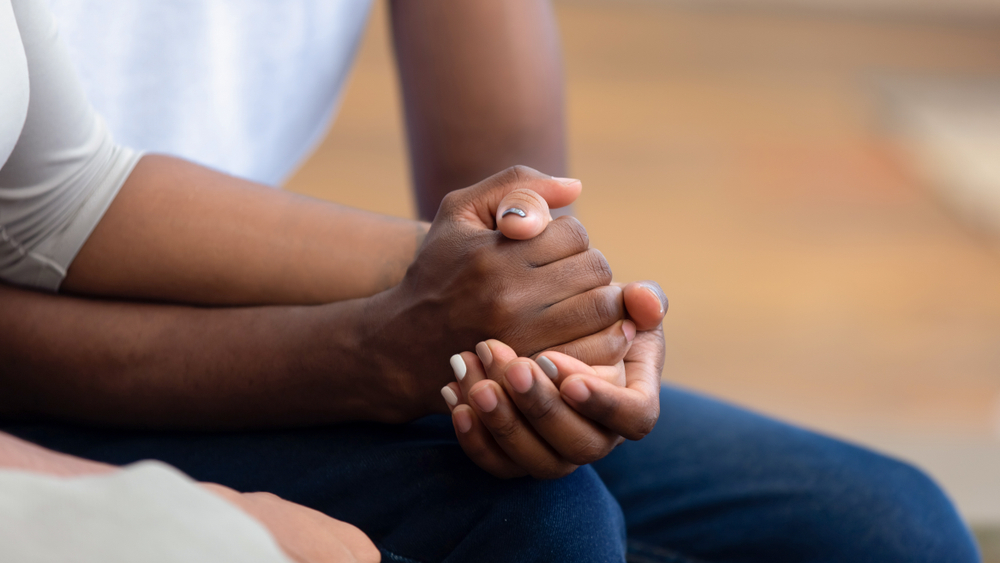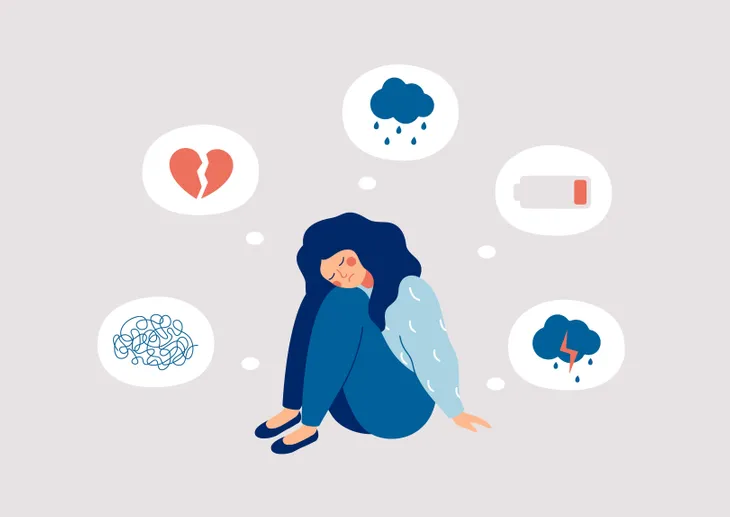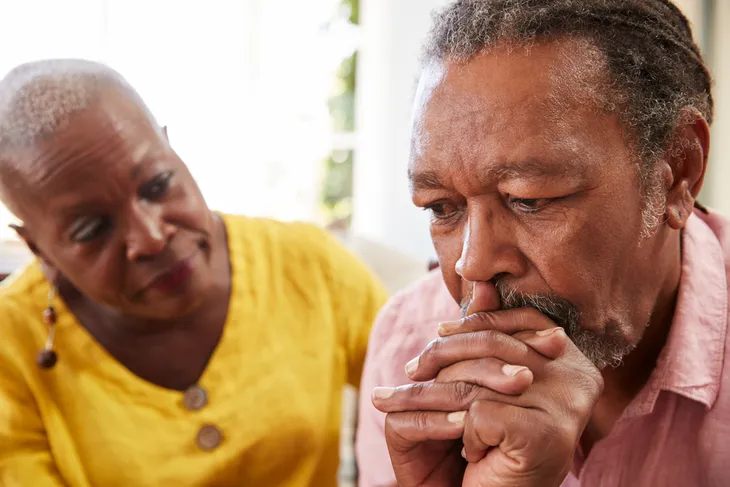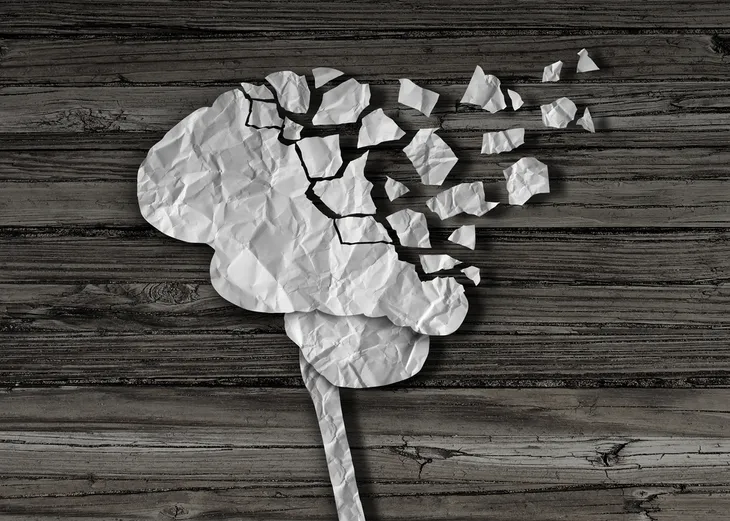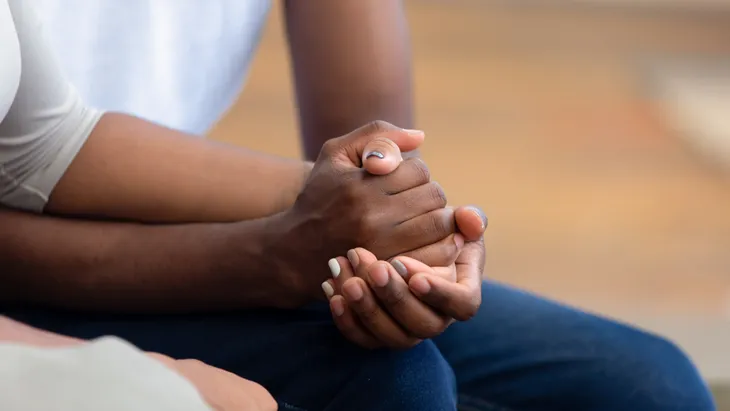- Losing a loved one is never easy and everyone experiences grief differently.
- While there is no set timeline for when normal grief becomes complicated grief, it does have a few distinctive features that can help you spot it when it does develop.
- Seeking help and support as soon as possible is crucial.
Losing a loved one is never easy and grief is far from a one size fits all response. It’s estimated that 7-percent of bereaved individuals might experience complicated grief; a type of grief that can last longer and be more intense than what some people might think is typical. But it’s important to remember, everyone experiences grief differently and that includes its duration and intensity.
Complicated grief can disrupt your daily life, cause you to withdraw socially, and can bring on a variety of strong emotions that are hard to deal with. This is why it’s important to get informed. If you or a loved one is dealing with grief, here’s how you can spot complicated grief. We’ll also uncover the common causes and treatment options available.
Complicated Grief vs. Normal Grief: What’s the Difference?
Normal grief and complicated grief can share the same signs and symptoms for the first few months after losing a loved one. However, symptoms of normal grief typically get better over time, those experiencing complicated grief may experience lingering or worsening symptoms, explains the Mayo Clinic.
While there is no set timeline for when normal grief becomes complicated grief, Medical News Today says complicated grief has a few distinctive features that can help you spot it when it develops. For example, complicated grief can be incredibly intense causing you to withdraw from daily activities. Complicated grief may also be diagnosed if symptoms don’t improve after 12-months or at least 6-months for teens and children.
How Complicated Grief Differs From Depression
Symptoms of complicated grief can overlap with symptoms of depression but it’s important to point out they are different. Healthline explains that the main difference is that “depression is a clinical disorder that starts in the brain.”
It’s also worth mentioning that in some cases, depression can develop as a result of grief. Depression can also cause symptoms of grief to worsen. However, the bottom line is that grief and depression are treated in different ways, explains the source.
Common Signs and Symptoms of Complicated Grief
As we mentioned, for the first while, signs and symptoms of normal grief and complicated grief will be the same. While the symptoms of normal grief gradually fade, complicated grief will worsen and linger. “Complicated grief is like being in an ongoing, heightened state of mourning that keeps you from healing,” explains the Mayo Clinic.
Some common signs and symptoms of complicated grief to watch out for include:
- Numbness and detachment
- An intense feeling of sorrow and pain over the loss of a loved one
- Obsessively thinking about the loss
- An intense longing for the individual that has passed away
- Feeling a sense of loss of purpose in life
- Unable to accept the loss has occurred
- Persistent and intrusive thoughts
- An inability to enjoy life
- Difficulty carrying out normal routines
- Withdrawing socially
Complicated grief can be different for everyone and while these are just a few symptoms to watch for, there are many other possible symptoms too.
How Complicated Grief Affects the Brain
Healthline explains that complicated grief has been shown to affect certain parts of the brain. For example, the source references one study that found it stimulates the nucleus accumbens which plays a role in your expectation of reward. This reaction may explain why complicated grief can last a long time.
The source also says complicated grief may stimulate the amygdala which may cause avoidance behaviors. This may also help explain why complicated grief is prolonged as you avoid accepting the loss of your loved one.
What Causes Complicated Grief?
The exact cause of complicated grief is not known but it’s most commonly triggered by the passing of a loved one. The Mayo Clinic also says your environment, personality, inherited traits, and your body’s chemical makeup may also play a role.
The source also says certain factors may increase your risk. For example, women, especially older women, are more susceptible to developing complicated grief. Experiencing a sudden and unexpected passing of a loved one can also increase your risk. Social isolation; a past history of depression, separation anxiety, post-traumatic stress disorder (PTSD); and traumatic childhood experiences are also risk factors.
Complications
Complicated grief can lead to serious complications as it can affect you mentally as well as physically and socially. Untreated grief may lead to depression, anxiety, and significant sleep disturbances, the Mayo Clinic explains.
Complicated grief may also affect your daily life, relationships, and work long-term. The source also notes that you may have an increased risk of certain physical illnesses, such as high blood pressure, heart disease, or cancer.
 Shutterstock/Syda Productions
Shutterstock/Syda ProductionsWhen to See a Doctor
You don’t need to wait for your grief to evolve into complicated grief before seeking help. Grief is not easy, and it’s better to seek support right away whether that’s from your doctor or a therapist (or both!). You should also seek help if your grief is disrupting your daily life and if you constantly feel hopeless, sad, or lonely.
Although rare, in some cases grief can cause a life-threatening condition called Takotsubo Cardiomyopathy, also known as broken heart syndrome. While this condition is not a heart attack, many of the symptoms are similar such as shortness of breath and chest pain. If you develop these symptoms, Medical News Today says you should seek emergency care and tell the doctor about your grief as this may help diagnose the condition.
Diagnosing Complicated Grief
Mental health experts aren’t quite sure how much time should pass before normal grief becomes complicated grief. Everyone experiences grief differently, it’s a “highly individual process for each person,” says the Mayo Clinic. This is why diagnosing complicated grief isn’t always easy.
The source notes that some health professionals may diagnose complicated grief if the individual’s symptoms continue to be intense and debilitating past 12-months. A diagnosis is important to help rule out depression and in order to get you the right treatment. To diagnose complicated grief, a complete medical and psychological exam is usually done.
Treating Complicated Grief
Once you’ve been diagnosed with complicated grief, your doctor or mental health professional will decide what treatment is best for you based on your symptoms. It’s important to follow the guidance of a health professional.
In some cases, medication may be necessary to help treat clinical depression and complicated grief. However, The Mayo Clinic points out there is little research that says physiatric medication can help treat complicated grief. Complicated grief is most often treated with psychotherapy, which we’ll explain in more detail next.
Psychotherapy
Psychotherapy is the most common form of treatment for complicated grief. Similar techniques that are used for treating depression and PTSD are also used for complicated grief. It can also be done in a group setting or individually.
Therapy may help you learn more about what complicated grief is, how it affects you, and help you redefine your life goals, says the Mayo Clinic. It may also help you become aware of your negative thought patterns, improve your coping skills and reduce your feelings of guilt or blame.
How to Cope
Along with attending therapy sessions, there are other small steps you can take to help cope with complicated grief. First, it’s important to follow the guidance of your health care professional and stick to your treatment plan.
Other ways to help cope with grief include managing your stress, getting enough good quality sleep, eating a healthy diet, exercising, and taking time to relax. Staying connected with people you love, and joining a support group may also help you cope.
The May Clinic also says planning ahead for special dates of anniversaries that may trigger painful memories is another helpful way to cope with grief. The source says to try to find new ways to celebrate or acknowledge your loved one in another way to help bring you comfort.
Can Complicated Grief Be Prevented?
The Mayo Clinic says it’s not clear if complicated grief can be prevented. That said, seeking help and support as soon as possible after the loss of a loved one may help. This is especially true if you’re at risk of developing it.
Some ways you may be able to help prevent complicated grief from developing is to start talking about your grief to people you trust and care about, as well as with a health professional. Allow yourself to be sad, to “prevent you from getting stuck in your sadness,” says the source. You can also ask your doctor for local resources such as support groups that are going through something similar to your experience. Seeking support early may help you learn healthy coping skills so that you can overcome your grief.
